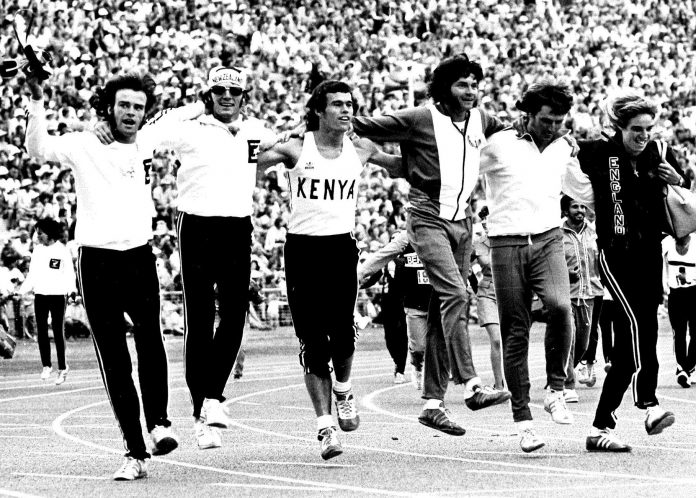
Memories of the Christchurch Commonwealth Games held 50 years ago this month are racing around in the mind of Trevor Cochrane as he prepares to attend celebrations this weekend.
The 72-year-old former Games runner from Ashburton will be at the anniversary event in Christchurch.
Trevor said he was looking forward to catching up with fellow games competitors, some he hasn’t seen since the 1974 games.
Trevor wasn’t the only athlete connected with Mid Canterbury to compete. Rendall McIntosh, 72, who now lives in Auckland competed in the hurdles, while Christchurch resident Valerie Young (nee Sloper), 86, from Lauriston won silver in shot put.
In an event where every second counts, Trevor, a retired Ashburton College teacher, missed winning a bronze medal at the games by 0.56 seconds.
The Friendly Games, as they became known, took place over 10 days in January and February.
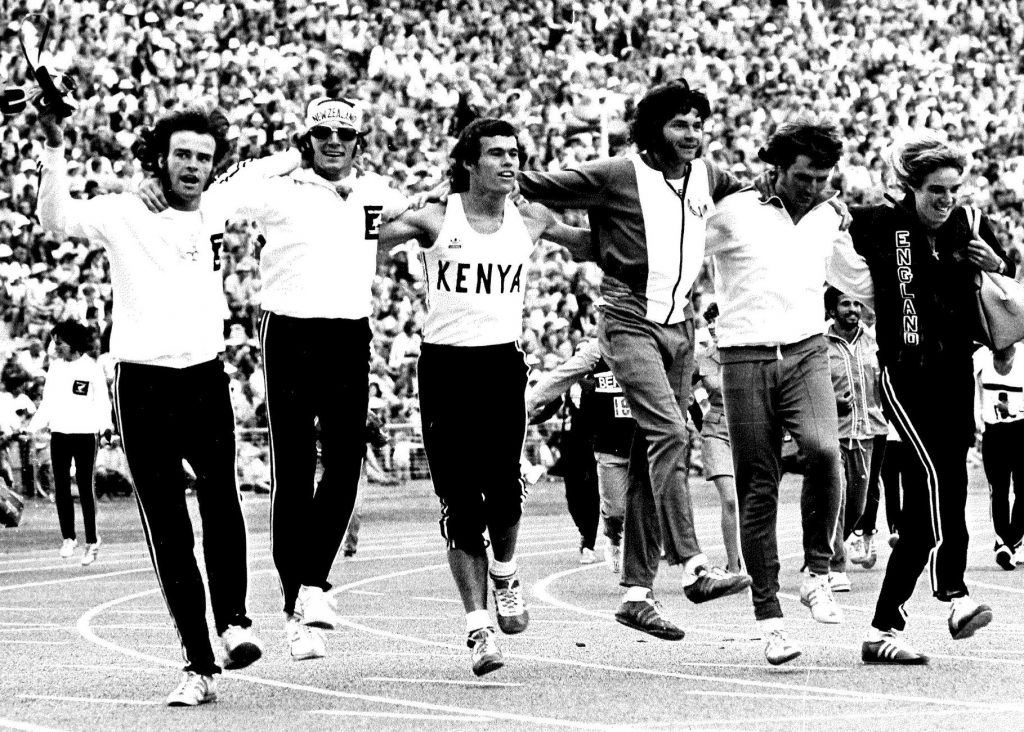
Trevor competed in four events – the 100m and 200m, and the four by 100m and four by 400m relays where the teams came in seventh and fifth.
‘‘As a sprinter you are expected to be in the relay teams,’’ he said.
Trevor said he was proud to have represented his country that year, the only time he competed in the event.
The games would be particularly be remembered for their friendliness, and the achievements on the opening day of New Zealander and fellow athlete Dick Tayler from South Canterbury.
Tayler stunned those watching with his gold medal race in the 10,000m.
It was an emotional time for many New Zealanders.
While all New Zealand celebrated Tayler’s win, Trevor also needed to focus on his own events.
‘‘I had a tear in my eye watching the last 300 metres of the race,’’ Trevor said.
Trevor learnt he had made the New Zealand team when it was announced on the radio.
He was teaching at Casebrook Intermediate, in Christchurch, at the time.
Some of Trevor’s students were part of the large number of children who took various parts in the opening, including singing, as members of youth organisations and those who formed the Commonwealth Games logo which was a New Zealand trademarked icon.
‘‘Hundreds of children dressed in red, blue and white rain coats formed the games’ logo.
‘‘Some of my students were chuffed to be part of the opening and excited their teacher was part of it,’’ he said.
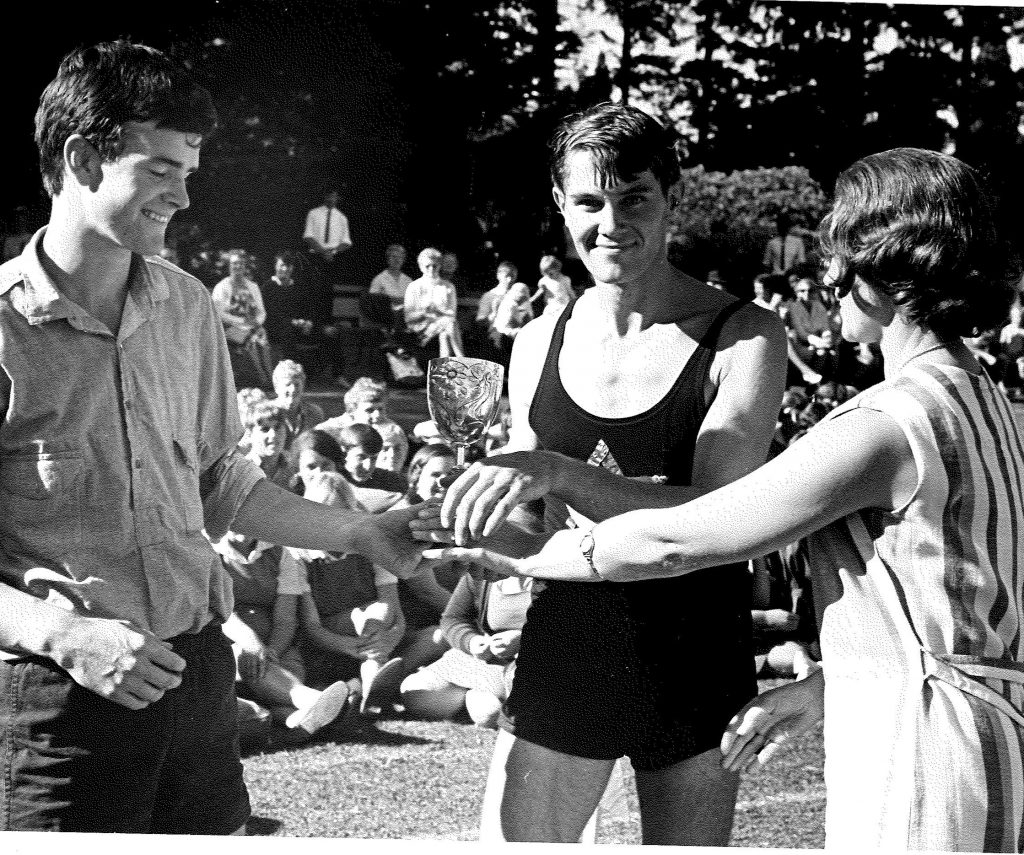
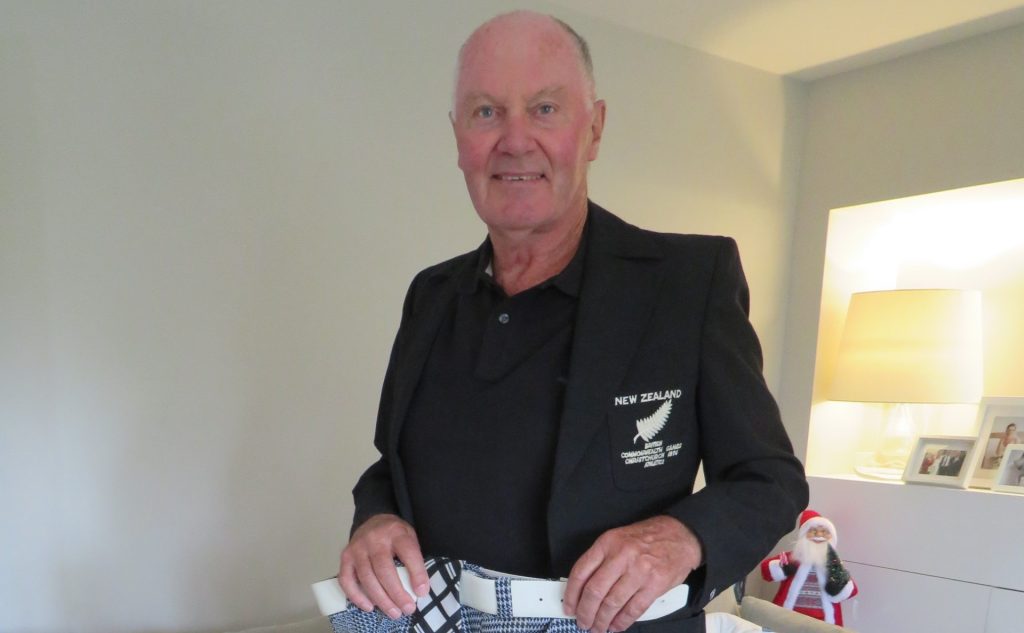
Trevor, who will attend this weekend’s meet and greet, and formal dinner, wearing his official games blazer, thoroughly enjoyed the experience at the games.
There was such a hype about them and competing in a stadium of people including members of his own family was a special feeling, he said.
‘‘My family were excited for me, knowing how much work I had put in to getting there.’’
The games were a big deal with television and international audiences. Colour television hadn’t long been in New Zealand, so this made the games all the more exciting, not that the full event was televised in colour.
‘‘There was simplicity about the games, but they had appeal to the public. Other than rugby, we didn’t see many live sports events.’’
Following the opening day success of Dick Tayler ‘‘droves of people attended the games ensuring it was a financial success.’’
Rendell, unable to attend this weekend’s celebrations, was a good friend and fellow member of the Christchurch Old Boys United Athletic Club alongside Trevor.
Rendell said he was fortunate to live on a farm near Ashburton and grew up with no boundaries on his dreams.
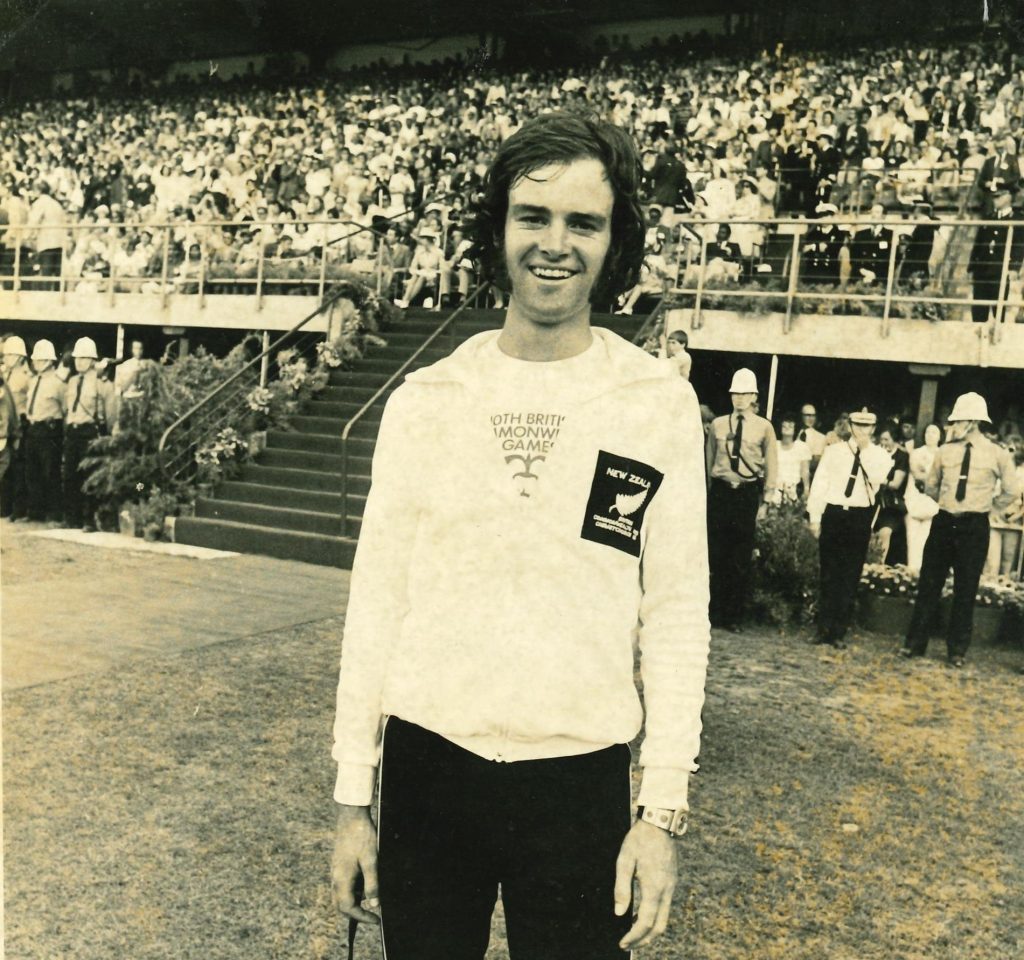
‘‘Those dreams did come true – I went to Outward Bound, I climbed Mt Cook Aoraki, I became a New Zealand champion in the 400 metres hurdles and represented New Zealand at the 1974 Commonwealth Games.
‘‘I have achieved many goals based on my mother’s words ‘If you don’t try, you won’t triumph’,” Rendell said.
He qualified for the games with his performance in the 400 metres hurdles at the NZ Championships in the previous year.
‘‘I broke the qualifying standard. I was also chosen for the 4 x 400 relay as a reserve though I wasn’t required.’’
His said his greatest athletic achievements were three national athletics championship titles, as the national hurdles champion in 1972 and 1975 and 800m in 1976.
While competing at the Christchurch was the only time he participated in a Commonwealth Games he ‘‘thoroughly loved the experience.’’
‘‘It really was a privilege to be part of such a successful event. Everything was so well managed with perfect weather conditions, supportive spectators and to be able to participate and watch fellow athletes compete was one of the highlights of my life,’’ he said.
‘‘The highlight of the games was making the semi-final of the 400 metres hurdles and running a personal best and a New Zealand resident record,’’ Rendall said.
He finished fifth in his heat, with a time of 53.1 seconds. In the semi-finals he placed sixth. His time of 51.95 seconds set a record a New Zealand national record for the event and was his best time.
Val Young won a silver medal at the games in shot put.
She was born in 1937 and raised the eldest of six children on a farm in Ashburton.
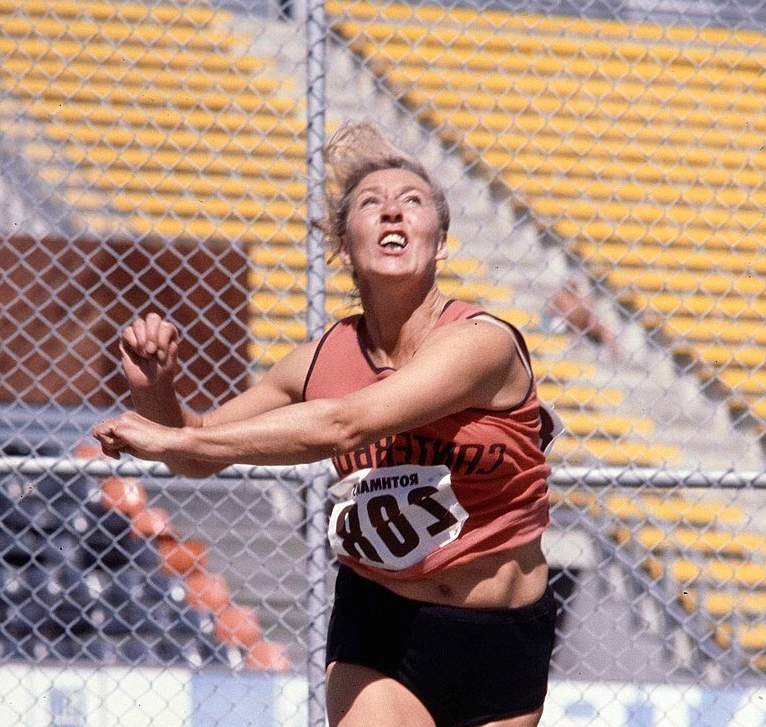
Val was introduced to athletics shortly after leaving home to live in Christchurch as a boarder at Christchurch Technical College.
During her sporting career 1956-82 she won a record 37 national titles, and 57 medals in all.
Her New Zealand discus record stood for three decades and her shot put record of 17.26 metres has not really been challenged in the 32 years since it was set.
In 1987 she was awarded an Order of the British Empire medal and 1990 was named among the inaugural inductees into the Sports Hall of Fame.
In the late 1950s and 60s she was the best female thrower in the Commonwealth.
She won a shot put gold and discus bronze at Cardiff in 1958, and in both Perth (1962) and Kingston (1966) achieved a double header with shot put and discus.
She had retired after the 1964 Olympics and changed sporting codes to basketball. However returned to compete at Kingston in 1966 after her husband, Ross, was offered the opportunity to be an official at the Kingston games.
‘‘I decided to try to make the team and was picked for the shot put and discus.’’
She won double gold in spot put and discus at the games before retiring again to start a family.
By 1974 Val was 36-years-old with three daughters.
“I did some soul-searching before the 1974 games,” she has said in the past.
“I hadn’t competed since the kids were born, but the standards hadn’t risen and because the games were in my home town, I decided to have a go. It was hard training with the kids, even though they were very well-behaved.
“Eventually I finished second, so I suppose that wasn’t too bad.”
The games, which ran for 10 days of competition, were attended by just 1600 competitors from 33 countries. It was the first major sporting event following the 1972 murder of Israeli athletes at the Munich Olympics and had a budget of less than $10m.
The athletes village was in student accommodation at Canterbury University, and the opening and closing ceremonies were held at Queen Elizabeth II Park, since demolished due to 2011 earthquake damage.
In comparison, the 1990 games hosted nearly 3000 team members and, less than two decades later, cost $100m.
The 2022 games in Birmingham cost around $1.6billion, Trevor said.
He would like to see the games continue but return to its former format, a less extravagant opening, using existing infrastructure.
New Zealand has hosted the games three times; in 1950 it was the British Empire Games held in Auckland, in 1974 it was the British Commonwealth Games in Christchurch, and in 1990 it was the Commonwealth Games in Auckland.



